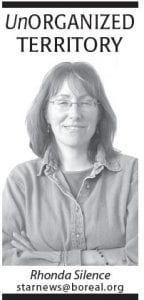After the paper went to press last week, we heard the horrific news about the shootings at Fort Hood, Texas on November 5. Any mass shooting anywhere is disturbing, but as someone who lived on or near military bases for twenty-plus years, my heart goes out to the people who live and work on Fort Hood.
I watched the news on Thursday evening and Friday morning, despairing as the names and photos of the soldiers who were killed were released. It is hard enough to see our young men and women killed in a war zone—it doesn’t seem possible that this could happen on U.S. soil, on a military installation.
One of the soldiers killed was from Minnesota. His grieving father was interviewed and frustrated, he asked why the soldiers were not armed. He questioned why they were unable to defend themselves.
I know the answer to that question. Or at least I used to know the answer. The reason the Fort Hood soldiers were not armed is because they didn’t need to be. Post is supposed to be a safe haven. Army (or Air Force, Marine or Navy) life is hard enough without having to fear such violence on post or on base. Normally, when a soldier, airman, Marine, or sailor—or his or her family members— pass through the gate with the armed guard, he or she is secure.
When we lived on Fort Ord, near Monterey, California, post was a beautiful place. Our downstairs duplex apartment was backed by sand dunes covered with succulent ice-plants. There were bicycle trails and a playground across the road. Our home was part of a closeknit, caring community of families like ours. We babysat one another’s children and had grownup slumber parties when our spouses were deployed.
When we left post, we sometimes faced hostility from a community that was tired of transients. When some of our soldiers were deployed to Panama, we drove past protestors and had to explain the angry faces and signs to our children. But once we made it through the post gates, we were home. We were safe.
Living in Heilbronn, Germany, we really appreciated the comfort of post. We loved living in Germany, enjoying day-to-day life in Europe. But there were times in our three years there that we were overcome with homesickness for the United States. The cure was a trip to post, or barracks as the Army facilities in Germany were called. Post was a microcosm of American society—a theater, a shopping center, a great school, and a well-staffed medical clinic.
We were there during the first Gulf War, so post was not just a cure for homesickness, it was a true safe haven. Again there was the discomfort of protestors at the gates, but there was also the real threat of terrorism. We were fortunate that nothing ever happened when we lived there, but we endured inspections of our vehicles when entering the gates and our kids rode the school bus under the watchful eye of an armed guard. But once on post, we were safe.
At all of our duty stations, it was the same. In every move, I packed and unpacked a crossstitched quote that summed up our Army lives: Home is where the Army posts us.
That is how it should be. Post is home.
That is what makes the Fort Hood tragedy so hard to bear. Soldiers, airmen, Marines, and sailors should not have to be armed as they prepare to deploy to a war zone. They should not have to be watching for attack when they return from a war zone. Family members should have a break from worry for their loved ones. Post should be an oasis of calm, a place where friendly camaraderie is found. It should be a place to regroup and restore—where people can feel secure. I pray that the soldiers, civilian workers, and families of Fort Hood can find a way to feel safe once again.
The soldier, above all other
people, prays for peace, for he
must suffer and bear the deepest
wounds and scars of war.
General Douglas MacArthur



Loading Comments